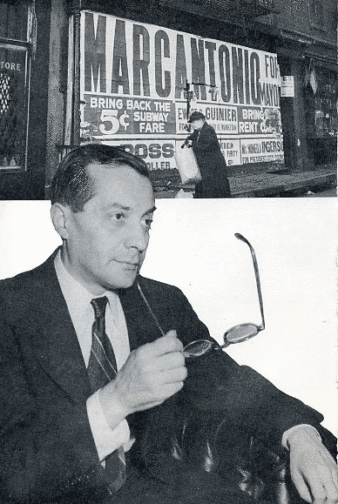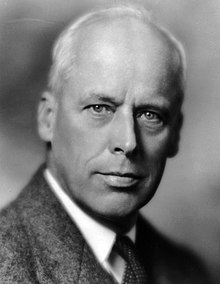
As a member of the Bread and Roses DSA caucus, which functions as an informal think-tank for Jacobin, Chris Maisano shares the heavy lifting of producing ideological justifications for work in the Democratic Party with fellow caucus member Eric Blanc. Both have elevated Karl Kautsky into a pantheon after the fashion of my generation worshipping at the altar of Trotsky, Mao, Castro or even Stalin. Lately it came to my attention that Kautsky’s star has fallen a bit in the Democratic Socialist firmament, to be replaced perhaps by Ralph Miliband, the editor of Socialist Register until his death in 1994.
Before delving into Maisano’s wrongheaded attempt to turn Miliband into a lodestar for the current epoch, it is worth saying a word or two about who Miliband was and what he stood for. Born in 1924, Miliband was a Marxist intellectual and a secular-minded Jew who fled Nazi persecution with his family. As refugees in England, the Milibands lived in a working-class neighborhood and barely scraped by. His introduction to radical politics was through Hashomer Hatzair, a socialist-Zionist youth group. From there, he evolved into a Marxist academic after graduating from the London School of Economics. It is reasonable to state that Miliband was a forerunner to Leo Panitch, another Jewish Marxist academic who assumed the helm of Socialist Register after Miliband’s passing. Although many of SR’s articles become available online, it is primarily a paywalled academic journal just like New Left Review, with contributions by academic leftists writing for others in their professional orbit. I never had any idea that SR existed until getting on the Internet in 1991 at Columbia University.
Despite sharing Karl Kautsky’s rejection of socialist revolution except through parliamentary means, Miliband’s ideology reflected trends that became fashionable in the 1960s, especially state theory. Alongside Nicos Poulantzas, Miliband was preoccupied with the question of how capitalism could be superseded on a basis other than what Marx, Engels, Luxemburg, and Trotsky advocated. This is obviously the same concern that the Jacobin/DSA think-tank has given its rejection of what it regards as “insurrectionary” illusions.
In a famous debate between Poulantzas and Miliband, they offered clashing views on how a non-revolutionary strategy might work. For Miliband, the state functions to serve capitalist interests because of the class basis of the government and the personal ties and influence between members of the government and ruling-class elites. His perspective showed the influence of C. Wright Mills, who was a friend. As for Poulantzas, he offered an Althusserian analysis of the state, which prioritized “structure”. It didn’t matter which class occupied government posts. It was the capitalist system that dictated which class interests were upheld. I haven’t read much Poulantzas but his writings on fascism were persuasive, given their ability to explain how Hitler—despite his class origins—could create a system that satisfied German big business. Of course, their debate had very little impact outside of the academy.
Maisano first made the case for Miliband in a polemic against Philly Socialist’s Tim Horras in a 2019 article written for The Call, the Bread and Roses magazine. Titled “Which Way to Socialism?“, its subtitle warned against “insurrectionary strategies” as if Tim, a librarian by trade, was out drilling with an AR-15 on the weekends. Maisano cites NYU sociology professor Jeff Goodwin to make his case:
As Jeff Goodwin reminds us in his comprehensive study of twentieth century revolutions, “no popular revolutionary movement, it bears emphasizing, has ever overthrown a consolidated democratic regime”
And to drive the point home, he buttresses Goodwin with a blast from Miliband:
There has been no such ‘fit’ between revolutionary organisation and leadership and the structures and circumstances of advanced capitalism and bourgeois democracy. Another way of saying this is that advanced capitalism and bourgeois democracy have produced a working class politics which has been non-insurrectionary and indeed anti-insurrectionary; and that this is the rock on which revolutionary organisation and politics have been broken.”
Is there a possibility that highly-placed academics who spend perhaps 8 hours lecturing per week and making over $140,000 per year might not be in the best position to hold forth on the working class being non-insurrectionary? In fact, it would probably be a good idea to retire the word insurrectionary since it is such a red herring when it comes to revolutionary strategy. Marx never wrote about insurrection, after all. That was more the bailiwick of Bakunin and the anarchists who never gave much thought about drawing workers into a mass movement.
More importantly, Maisano was citing a Miliband article written in 1978 and titled “Constitutionalism and Revolution: Notes on Eurocommunism” that hardly spoke to our contemporary situation. Miliband drew a picture of “Leninist” groups that people like Bhaskar Sunkara and Chris Maisano would guffaw at:
In a broader perspective, it is obvious that conditions in advanced capitalist countries would have to become enormously worse, in ways which it is at present difficult to envisage, for the necessary basis of mass support to be engendered which would significantly advance the prospects of a “vanguard party” bent on an ultimate seizure of power. Those groupings which see themselves as embryonic (or actual) “vanguard parties” do in fact work on catastrophist assumptions, and expect that economic collapse, the replacement of bourgeois democracy by some form of authoritarianism and fascism, and even war, will eventually bring about the necessary conditions of revolutionary success and make it possible to repeat the Bolshevik scenario of 1917.
By 1978, there were few on the far left who thought in such terms. After seeing the roadside detritus of the Maoist and Trotskyist groups, most Marxists had already begun to rethink the “democratic centralist” formulas that had led to sect-cult formations. This is not to speak of the political deep freeze that could hardly be ignored with Jimmy Carter in the White House and cocaine flooding the discotheques. In essence, Miliband was beating a corpse over the head.
Even if “vanguard” parties had bitten the dust, it would have been a mistake for Miliband to view 1978 as a permanent state. Between 1978 and 2021, a period of 43 years, catastrophist assumptions and economic collapse have become realities. Keep in mind that if the Communist Manifesto seemed out of whack with bourgeois normality in 1848 (except of course for those pesky struggles against feudal remains), 1889—41 years later—would have set the stage for the imperialist rivalries that would bring capitalism crashing to its knees in 1914.
This, of course, is the fatal flaw of Jacobin/DSA. It expects to see a renaissance of the Scandinavian welfare states when they are already being dismantled. Even with Joe Biden’s bailout and proposals for a massive infrastructure investment, we are facing a Sixth Extinction according to some of the world’s leading scientists. Does anybody expect that such catastrophic threats can be overcome by electing liberal Democrats, even if they like to call themselves socialists?
Whatever Miliband’s flaws, respects have to be paid for his insistence on the need for socialism. Just like Leon Panitch and Sam Gindin’s Socialist Project, Ralph Miliband created the Socialist Society in 1981 in collaboration with Raymond Williams to help launch a socialist party that could challenge both Labour and the Conservatives. The Socialist Society involved New Left Review leaders like Tariq Ali and worked closely with the British Trotskyists of the Ernest Mandel-led Fourth International. Like Peter Camejo’s efforts to develop a non-sectarian left in the USA, it was a product of its time. Unfortunately, the Socialist Project and before it The Socialist Society lacked the foot-soldiers of a mass movement to turn this dream into a reality. You can see the harbingers of such a mass movement in BLM that most leftists identify with, even if Jacobin/DSA continues to provide a platform for Adolph Reed Jr.’s academic sect that warns about BLM being a tool of the corporate elite rather than the most important Black struggle organization since the 1960s.
Turning now to Maisano’s latest on Ralph Miliband, an article written for the DSA magazine titled “A Left That Matters” (a briefer version appears in Jacobin), it restates the Jacobin/DSA think-tank’s by-now calcified support for the Democratic Party:
I was more sympathetic to arguments against tactical use of the Democratic line before the catalytic effects of the Sanders campaigns became fully clear. But the political developments of the last few years have effectively settled the Democratic Party question, at least for now. Whether we like it or not, working-class organizers will continue to use major party primaries so long as they exist and bear fruit. Though the Democratic Party establishment proved to be cohesive enough on a national level to defeat Sanders’ 2020 primary campaign, traditional party organizations at the state and local levels are, to a significant extent, moribund and hollowed out. In many cases they cannot effectively defend themselves and their incumbents, and can’t depose insurgents after they win office through election on the Democratic Party ballot line.
After this bedraggled post-Michael Harrington argument is put forward, Maisano summons up the ghost of Ralph Miliband to give it the stamp of authority. Once again, we hear about the sectarian left as if it were 1971 or so: “The political currents which flow from the Leninist and Trotskyist traditions are exhausted. They cannot break out of their debilitating marginality because their strategic orientation is fundamentally incompatible with the political and social conditions of advanced, welfare-state capitalism and bourgeois democracy.” For Christ’s sake, who is this directed at? Like a creature from outer space, particularly the green Jell-O like monster in “The Blob”, the DSA has already absorbed the ISO and is about gobble up Socialist Alternative for dessert.
Maisano would have us read Ralph Miliband’s 1976 article titled “Moving On” just to make sure that we have learned our lesson properly:
The political currents which flow from the Leninist and Trotskyist traditions are exhausted. They cannot break out of their debilitating marginality because their strategic orientation is fundamentally incompatible with the political and social conditions of advanced, welfare-state capitalism and bourgeois democracy. In the U.S. context, they are further constrained by an aversion to electoral action as well as a dogmatic sectarianism regarding the Democratic Party.
If you take the trouble to read Miliband’s article, you’ll see that much of it is directed against the Labour Party. Indeed, most of his career, as I pointed out earlier, was devoted to creating a non-sectarian socialist party that would finally leave the dead-end of Fabian Socialism behind. Just substitute the words “Democratic Party” for “Labour Party” and you’ll understand why poor Ralph Miliband would be spinning in his grave if he was aware of the words Chris Maisano put in his mouth, so much so that a transformer attached to his big toe could probably serve Phoenix, Arizona’s electrical needs for six months at least. This is not to speak of the fact that Labour broke with the Liberal Party in England, their equivalent of the Democratic Party. Oh, did I mention that Eric Blanc advocates staying with the Democrats for as long as possible based on the “success” of Labour only breaking with the Liberals after far too many years of tail-ending a capitalist party?
Inevitably, one must start with the Labour Party. There cannot now be many socialists in the Labour Party (and even fewer outside) who believe that most of its leaders are concerned with the task of effecting the ‘fundamental and irreversible shift in the balance of wealth and power in favour of working people and their families’ of which the Labour Manifesto spoke in 1974. But there are many socialists in the Labour Party who do believe very firmly that they can eventually and by dint of great pressure compel their leaders to adopt left-wing policies and even to translate these policies into practice; or alternatively that they can bring to the leadership of the Labour Party men and women who will want to adopt and put into practice such policies.
There is no point in rehearsing here arguments which have been endlessly canvassed as to whether this is a realistic prospect or not. That controversy has gone on for three quarters of a century, that is ever since the Labour Party came into existence; and insofar as it cannot be conclusively proved that the Labour Party will not in any serious sense be turned in socialist directions, the chances are that the controversy will go on for a long time to come, without leading anywhere. My own view, often reiterated, is that the belief in the effective transformation of the Labour Party into an instrument of socialist policies is the most crippling of all illusions to which socialists in Britain have been prone. But this is not what I propose to argue yet again here. It will be more useful to take up some of the more important considerations which are commonly advanced by socialists for working in the Labour Party, whatever the odds, and for not looking farther afield.









